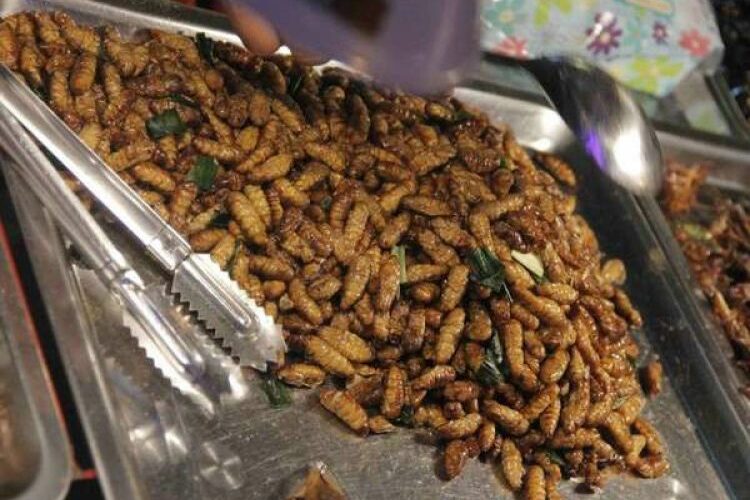Indonesia is renowned for its diverse culinary scene, with each region offering unique and flavorful dishes that reflect the local culture and traditions. One city that stands out for its extreme culinary delights is Jogja, also known as Yogyakarta. Nestled on the island of Java, Jogja is a treasure trove of bold and adventurous dishes that are not for the faint of heart. From fiery street food to exotic delicacies, the culinary landscape of Jogja is a feast for the senses. Let’s delve into the world of “Kuliner Ekstrim di Jogja” and explore the gastronomic wonders that await in this vibrant city.
Heading: Street Food Adventures in Jogja
When it comes to extreme culinary experiences, Jogja’s vibrant street food scene takes center stage. The bustling streets are lined with food carts and stalls offering a dizzying array of bold and daring dishes that push the boundaries of traditional Indonesian cuisine. From deep-fried insects to sizzling satay skewers, adventurous eaters will find no shortage of options to tantalize their taste buds.
Subheading: The Delight of Rujak Cingur
One of the most popular and unique street foods in Jogja is Rujak Cingur, a dish that combines sweet, sour, and spicy flavors in a harmonious symphony of taste. This exotic salad features a medley of ingredients, including crispy cow snout, tofu, and cucumber, all drenched in a flavorful sauce made from tamarind, peanuts, and chili. Rujak Cingur is not for the faint of heart, but for those willing to take a culinary leap of faith, it offers a truly unforgettable dining experience.
Subheading: The Heat of Sate Klatak
For those craving a taste of adventure, Sate Klatak is a must-try dish in Jogja. This fiery street food consists of skewers of goat meat that are grilled over an open flame until charred to perfection. The secret to Sate Klatak’s bold flavor lies in its marinade, which typically includes a potent blend of spices and herbs. Served with a side of lontong (compressed rice cake) and spicy peanut sauce, this dish is sure to satisfy even the most daring of palates.
Heading: Unconventional Delicacies of Jogja
In addition to its thrilling street food scene, Jogja is also home to a variety of unconventional delicacies that are not for the faint of heart. These dishes push the boundaries of traditional Indonesian cuisine, offering a glimpse into the fearless spirit of the city’s culinary scene. From bizarre ingredients to unconventional cooking methods, Jogja’s extreme delicacies are a testament to the city’s adventurous gastronomic spirit.
Subheading: The Intriguing Flavors of Botok Tawon
One of the most unique delicacies in Jogja is Botok Tawon, a dish that features bee larvae as its main ingredient. These tiny insects are mixed with coconut, spices, and herbs, and then steamed in banana leaves to create a flavorful and aromatic dish that is unlike anything you’ve ever tasted. While the thought of eating bee larvae may be daunting to some, those who dare to try Botok Tawon will be rewarded with a culinary experience that is truly one-of-a-kind.
Subheading: The Exotic Appeal of Gabus Pucung
Another exotic delicacy that is popular in Jogja is Gabus Pucung, a dish made from fermented snakehead fish. This unconventional ingredient is marinated in a blend of spices and herbs, then grilled or fried to perfection. The result is a dish that is rich in flavor and texture, with a unique umami taste that is sure to intrigue even the most seasoned food connoisseurs. While Gabus Pucung may not be for everyone, those with an adventurous palate will appreciate the bold flavors and exotic appeal of this unconventional dish.
Heading: The Culinary Culture of Jogja
Beyond its extreme dishes and unconventional delicacies, Jogja’s culinary culture is deeply rooted in tradition and history. The city’s vibrant food scene is a reflection of its rich cultural heritage, blending influences from Javanese, Chinese, and Dutch cuisines to create a unique and diverse culinary tapestry. From traditional cooking techniques to time-honored recipes passed down through generations, Jogja’s culinary culture is a celebration of the city’s rich and flavorful past.
Subheading: The Tradition of Jamu
One of the cornerstones of Jogja’s culinary culture is Jamu, a traditional Indonesian herbal medicine that is also enjoyed as a tonic. Made from a blend of natural ingredients, including herbs, roots, and spices, Jamu is believed to have a variety of health benefits, from boosting the immune system to improving digestion. In Jogja, Jamu is not just a medicinal drink but also a beloved beverage that is enjoyed by locals and visitors alike. The tradition of Jamu is a testament to Jogja’s deep connection to its culinary roots and a celebration of the city’s vibrant food culture.
Subheading: The Influence of Royal Cuisine
Another defining aspect of Jogja’s culinary culture is the influence of royal cuisine, which has been shaped by centuries of tradition and refinement. The city’s royal palaces, such as the Kraton Ngayogyakarta Hadiningrat, have long been known for their sumptuous feasts and exquisite dishes, which are fit for royalty. From savory beef dishes to decadent sweets, Jogja’s royal cuisine is a testament to the city’s culinary sophistication and its deep connection to its regal past. By exploring the influence of royal cuisine in Jogja, one can gain a deeper appreciation for the city’s rich culinary heritage and the flavors that have shaped its gastronomic landscape.
